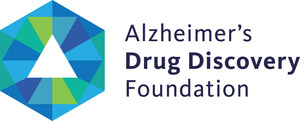The FDA approval of Kisunla introduces a second anti-amyloid to the market, expanding on the arsenal of therapies needed to successfully treat Alzheimer's.
Recent approval confirms amyloids' role in modestly slowing cognitive decline by around 30%, highlighting the need to develop novel therapies that can be used in combination to achieve 100% slowing of decline.
NEW YORK, July 2, 2024 /PRNewswire/ -- Today's FDA approval of the monoclonal antibody donanemab (Kisunla) for the treatment of mild cognitive impairment or early-stage Alzheimer's disease and confirmed amyloid plaques in the brain marks the first approval of an anti-amyloid therapy with evidence to support stopping treatment once amyloid plaques are removed. This breakthrough, coupled with the emergence of the biology of aging as the leading approach for drug development, moves the field closer to treating the disease through what is regarded as the holy grail of care, combination therapy and precision medicine, like within cancer care.
"This approval is emblematic of the new era of Alzheimer's research where we now have the first class of disease-modifying drugs that will eventually be used in combination with novel therapies—based on the biology of aging—that target all the underlying complexities of this disease," says Howard Fillit, MD, Co-Founder and Chief Science Officer at the Alzheimer's Drug Discovery Foundation (ADDF). "This milestone will not only catalyze the next generation of therapies, but also reframe how we deliver treatments. It's promising to see that some patients essentially enter remission, where they achieve full amyloid clearance with no resurgence in substantial plaque buildup for several years to follow."
Anti-amyloid drugs have proven effective at modestly slowing cognitive decline by about one-third—and have the potential to become the standard of care—but there remains a pressing need to develop multiple novel drugs that target the underlying disease biology. The current pipeline is primed to deliver in the next few years, with nearly 75% of drugs in development focusing on targets beyond amyloid and tau. With two drugs on the market and a robust drug pipeline underway, the field is well-positioned to implement a combination therapy approach, and this begins with an early and accurate diagnosis.
"We are no longer asking whether or not we can diagnose Alzheimer's, but, rather, how early can we detect the disease?" adds Dr. Fillit. "With the validation of new biomarkers, especially blood tests, we can now diagnose the disease with ease and intervene earlier than ever, including in the preclinical phase, opening the door prevention. We can finally deliver the right drugs to the right patients at the right time."
Advances in biomarkers are crucial to facilitating drug development as shown in the Kisunla study where Eli Lilly & Company used the Amyvid® PET scan and the C2N blood test, PrecivityAD®, both of which received early seed-funding from the ADDF, to aid with trial enrollment and monitoring of the drug's target engagement. The donanemab trial reaffirms the value of drug and biomarker development occurring simultaneously, which leads to more efficient and rigorous clinical trials. Now, with the advent of new biomarkers, physicians will be able to gain insight into patients' individual risk profiles, enabling them to diagnose the disease earlier and combine therapeutics with lifestyle interventions to slow the progression of the disease.
"While this is exciting news for the field, it is crucial we continue to look to a future where we can halt the progression of Alzheimer's or prevent it altogether by developing new therapies and biomarkers based around the biology of aging. In the next five years, we will see firsthand how combining lifestyle interventions and therapeutics tailored to each patient's individual needs will further slow cognitive decline," concludes Dr. Fillit.
About The Alzheimer's Drug Discovery Foundation (ADDF)
Founded in 1998 by Leonard A. and Ronald S. Lauder, the Alzheimer's Drug Discovery Foundation is dedicated to rapidly accelerating the discovery of drugs to prevent, treat and cure Alzheimer's disease. The ADDF is the only public charity solely focused on funding the development of drugs for Alzheimer's, employing a venture philanthropy model to support research in academia and the biotech industry. The ADDF's leadership and contributions to the field have played a pivotal role in bringing the first Alzheimer's PET scan (Amyvid®) and blood test (PrecivityAD®) to market, as well as fueling the current robust and diverse drug pipeline. Through the generosity of its donors, the ADDF has awarded more than $290 million to fund over 750 Alzheimer's drug discovery programs, biomarker programs and clinical trials in 20 countries. To learn more, please visit: http://www.alzdiscovery.org/.
SOURCE Alzheimer's Drug Discovery Foundation

WANT YOUR COMPANY'S NEWS FEATURED ON PRNEWSWIRE.COM?
Newsrooms &
Influencers
Digital Media
Outlets
Journalists
Opted In






Share this article